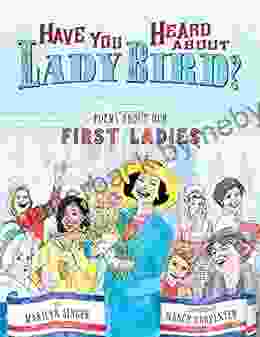The Great Depression: A Libertarian Perspective by Murray Rothbard

4.5 out of 5
| Language | : | English |
| File size | : | 3031 KB |
| Text-to-Speech | : | Enabled |
| Screen Reader | : | Supported |
| Enhanced typesetting | : | Enabled |
| Word Wise | : | Enabled |
| Print length | : | 418 pages |
| Lending | : | Enabled |
Murray Rothbard's classic book on the Great Depression offers a unique libertarian perspective on one of the most devastating economic crises in American history. Rothbard argues that the Great Depression was caused by government intervention in the economy, and that the best way to prevent future depressions is to reduce the size and scope of government.
Government Intervention and the Great Depression
Rothbard begins his book by arguing that the Great Depression was not caused by any inherent flaws in the capitalist system. Rather, he argues that the Great Depression was the result of a series of government interventions in the economy that began with the Federal Reserve's decision to raise interest rates in 1928. This decision, Rothbard argues, led to a contraction of the money supply and a decline in investment. The Smoot-Hawley Tariff of 1930, which raised tariffs on imported goods, further exacerbated the economic downturn by reducing international trade.
Rothbard also argues that the New Deal policies of President Franklin D. Roosevelt prolonged the Great Depression by further increasing government intervention in the economy. The National Industrial Recovery Act of 1933, for example, gave the government the power to set prices and wages, while the Agricultural Adjustment Act of 1933 led to the destruction of crops and livestock. These policies, Rothbard argues, prevented the economy from recovering from the Great Depression.
The Libertarian Alternative
Rothbard concludes his book by arguing that the best way to prevent future depressions is to reduce the size and scope of government. He argues that the government should not be involved in the economy beyond providing for national defense, law enforcement, and the courts. By reducing government intervention in the economy, Rothbard argues, we can create a more prosperous and stable society.
Murray Rothbard's The Great Depression: A Libertarian Perspective is a classic work of economic history and theory. Rothbard's analysis of the Great Depression is both insightful and provocative, and his recommendations for preventing future depressions are well worth considering. Whether you agree with Rothbard's libertarian perspective or not, The Great Depression is a must-read for anyone interested in understanding one of the most devastating economic crises in American history.
About the Author
Murray Rothbard (1926-1995) was an American economist, historian, and political philosopher. He was a leading figure in the libertarian movement, and his work has had a profound influence on libertarian thought. Rothbard was a prolific writer, and his books and articles have been translated into more than 20 languages.
### SEO-optimized Image Alt Attributes
* **Image 1:** A black-and-white photograph of Murray Rothbard, a leading libertarian economist and author of "The Great Depression: A Libertarian Perspective." * **Image 2:** A graph showing the decline in the money supply and investment during the Great Depression. * **Image 3:** A photograph of President Franklin D. Roosevelt signing the National Industrial Recovery Act of 1933, which gave the government the power to set prices and wages. * **Image 4:** A photograph of farmers destroying crops and livestock as part of the Agricultural Adjustment Act of 1933.
4.5 out of 5
| Language | : | English |
| File size | : | 3031 KB |
| Text-to-Speech | : | Enabled |
| Screen Reader | : | Supported |
| Enhanced typesetting | : | Enabled |
| Word Wise | : | Enabled |
| Print length | : | 418 pages |
| Lending | : | Enabled |
Do you want to contribute by writing guest posts on this blog?
Please contact us and send us a resume of previous articles that you have written.
 Book
Book Novel
Novel Page
Page Chapter
Chapter Text
Text Story
Story Genre
Genre Reader
Reader Library
Library Paperback
Paperback E-book
E-book Magazine
Magazine Newspaper
Newspaper Paragraph
Paragraph Sentence
Sentence Bookmark
Bookmark Shelf
Shelf Glossary
Glossary Bibliography
Bibliography Foreword
Foreword Preface
Preface Synopsis
Synopsis Annotation
Annotation Footnote
Footnote Manuscript
Manuscript Scroll
Scroll Codex
Codex Tome
Tome Bestseller
Bestseller Classics
Classics Library card
Library card Narrative
Narrative Biography
Biography Autobiography
Autobiography Memoir
Memoir Reference
Reference Encyclopedia
Encyclopedia Tara Brach
Tara Brach Michael Genhart
Michael Genhart Kevin Bruyneel
Kevin Bruyneel Kerri Andrews
Kerri Andrews Matthew Justice
Matthew Justice Paul Mooney
Paul Mooney Yair Lapid
Yair Lapid Seymour Reit
Seymour Reit Patrick Barrett
Patrick Barrett Robert Heidler
Robert Heidler Linda Gray
Linda Gray Khurshid Alam
Khurshid Alam Kindle Comixology
Kindle Comixology Test Masters
Test Masters Kevin Mclaughlin
Kevin Mclaughlin Kerry Kimber
Kerry Kimber Michael A Tompkins
Michael A Tompkins Kim Vesey
Kim Vesey Muhammad Yusuf Saleem
Muhammad Yusuf Saleem Stuart James Amei
Stuart James Amei
Light bulbAdvertise smarter! Our strategic ad space ensures maximum exposure. Reserve your spot today!
 Max TurnerFollow ·14.8k
Max TurnerFollow ·14.8k Israel BellFollow ·19.8k
Israel BellFollow ·19.8k Edison MitchellFollow ·11.1k
Edison MitchellFollow ·11.1k Anton FosterFollow ·17.4k
Anton FosterFollow ·17.4k Calvin FisherFollow ·15.5k
Calvin FisherFollow ·15.5k Guy PowellFollow ·17.2k
Guy PowellFollow ·17.2k Efrain PowellFollow ·5.2k
Efrain PowellFollow ·5.2k James JoyceFollow ·10.8k
James JoyceFollow ·10.8k

 Isaac Asimov
Isaac AsimovEmbark on an Epic Adventure: The Colorado Trail 9th...
Unveiling the Treasures of the Colorado...

 Clinton Reed
Clinton ReedUltimate Football Heroes: Uncover the Gridiron Greatness...
Enter the World...

 Ibrahim Blair
Ibrahim BlairUnveiling the Secrets of Stolen Focus: A Journey to...
In today's relentless digital...

 Colt Simmons
Colt SimmonsRediscover the Founding Father's Vision: Thomas Jefferson...
Immerse Yourself in the Unedited Words of...

 Juan Butler
Juan ButlerExcel in Language Learning: The Ultimate Self-Study...
Unlock Your Language Potential with Our...
4.5 out of 5
| Language | : | English |
| File size | : | 3031 KB |
| Text-to-Speech | : | Enabled |
| Screen Reader | : | Supported |
| Enhanced typesetting | : | Enabled |
| Word Wise | : | Enabled |
| Print length | : | 418 pages |
| Lending | : | Enabled |














